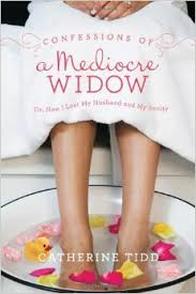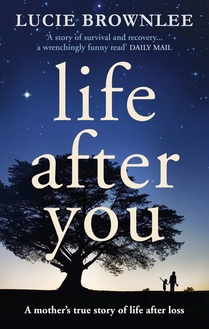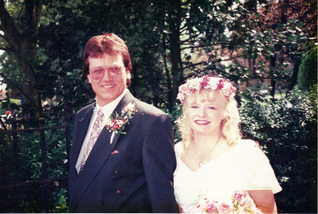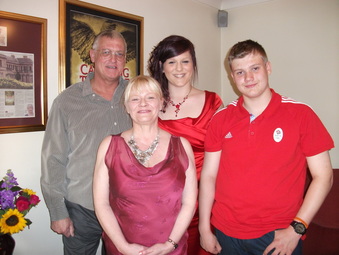Revisiting The Widowhood
Three years ago, I mentioned it a lot. To anyone who would listen. In fact, I didn’t just mention it – I screamed my anguish from the rooftops. Many of my friends and family received late-night, alcohol-induced phone calls and emails in which I railed against the cruelty and injustice of his terminal diagnosis and my fear of a future without him. After he died, I sobbed on the shoulder of anyone who would hold me. In the street. In a café. Or in the pub.
So why the change? Why did I stop discussing Chris and showing my grief? Have I ‘got over it?’ Moved on? Or have I simply changed?
And the other devastating discovery made by youngish widows is that there is no handbook on the shelves of W.H. Smiths to tell you how to cope and survive your tragedy, the ensuing loneliness or the survivor’s guilt. Counsellors, family and friends do what they can to help, and are brilliant at dealing with practicalities, but ultimately you are on your own with your insomnia, the nightmares and the angst at 3 am in the morning. You have to work through it by yourself.
As the uniqueness of my isolated position dawned on me, I started to feel like a freak. A very damaged freak. I made a conscious effort to stop talking about Chris and my bereavement and to deal with my heartache in private. Whether this was a good or a psychologically damaging thing to do to myself, I have no idea. Only time will tell if the pressure will eventually erupt in some form of mental breakdown. But I also had my heart-broken, teenage children to consider and they didn’t need a wailing, sobbing mother parading her grief in public. They needed a calm role model to help them get through the loss of their amazing father.

However, there have been many times when the isolation of my situation has led me to reach out to others in a similar situation. For a while I was a member of the ‘widdahud,’ an online forum for widows and I was a very needy member, too. I did get some support, for which I am eternally grateful, but I found myself unable to give it back. Chris’ death left me blank, numb and sometimes downright crass when faced with the misery and despair of strangers. Embarrassed by my own lack of empathy and uncomfortable with just being a ‘taker’ rather than a positive contributor to the discussion boards, I abandoned the forum.
In addition to this, the widows’ forum lacked humour. This seems a strange thing to write, I know, but occasional flashes of ghoulish humour and irony make an untenable situation slightly more bearable. Sometimes these tiny moments of light are the only things around to help drag ourselves through another miserable day; we would go mad without them. Death and grief are an ugly business and the very antithesis of romance. A flash of bizarre humour helps with the healing.
It was the humorous title that eventually attracted me to a self-help book for widows by the American author, Catherine Tidd. I had never read a true-life ‘misery memoir’ before and normally shunned the genre as depressing but I couldn’t resist The Confessions of a Mediocre Widow. It brilliantly summed up how I saw myself three years ago – and how I still see myself today. I am that Mediocre Widow. I enjoyed (is that the right word?) Catherine Tidd’s account of her husband’s sudden death and how she survived (again, is that the right word?) and stumbled through the aftermath. I especially appreciated the gentle humour that lifted the pages of this book and made the despair bearable.

Like me, Lucie is determined not to be defined by her widowhood and has branched out into mainstream fiction. I sincerely wish her the best and look forward to reading more from this very talented author.


 RSS Feed
RSS Feed